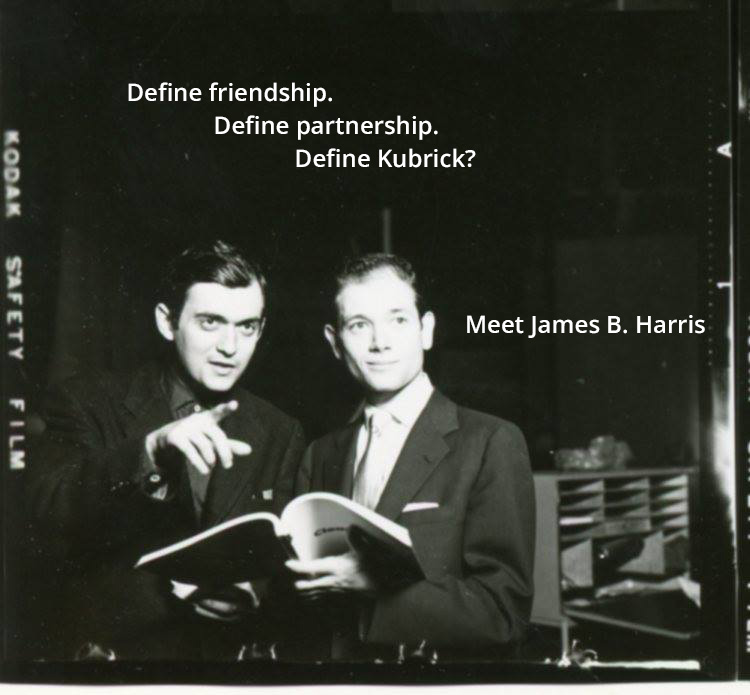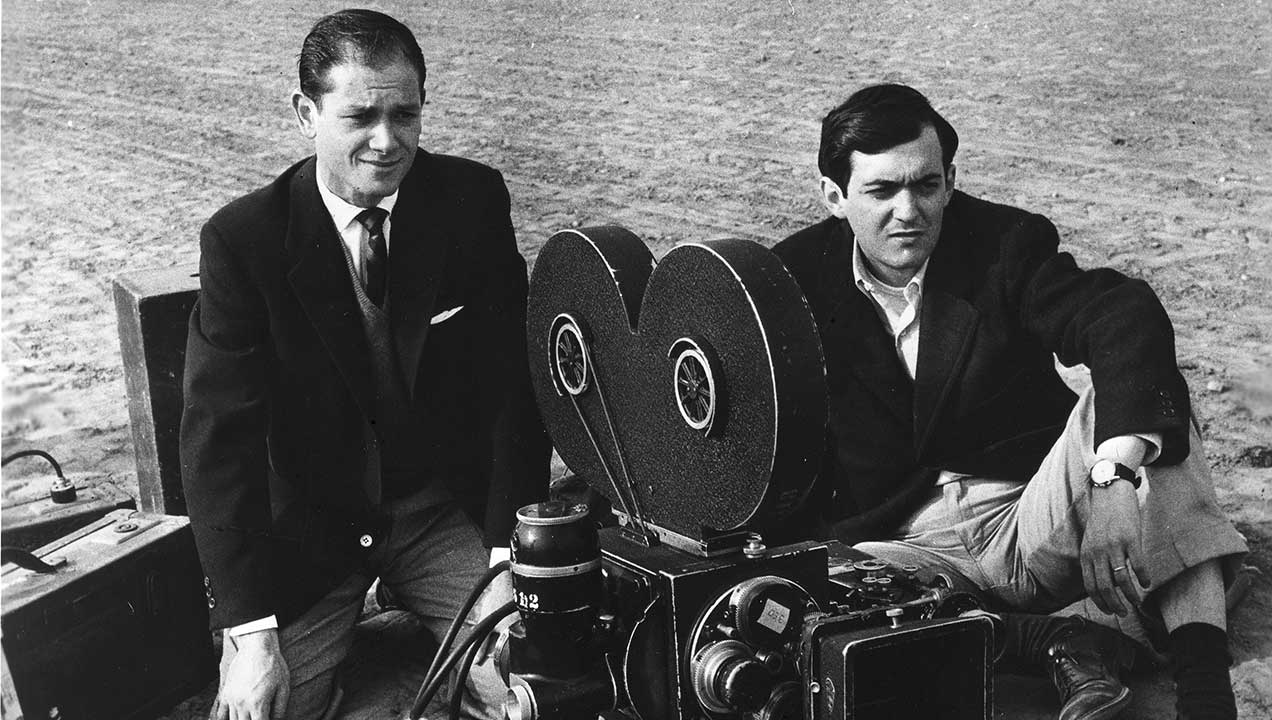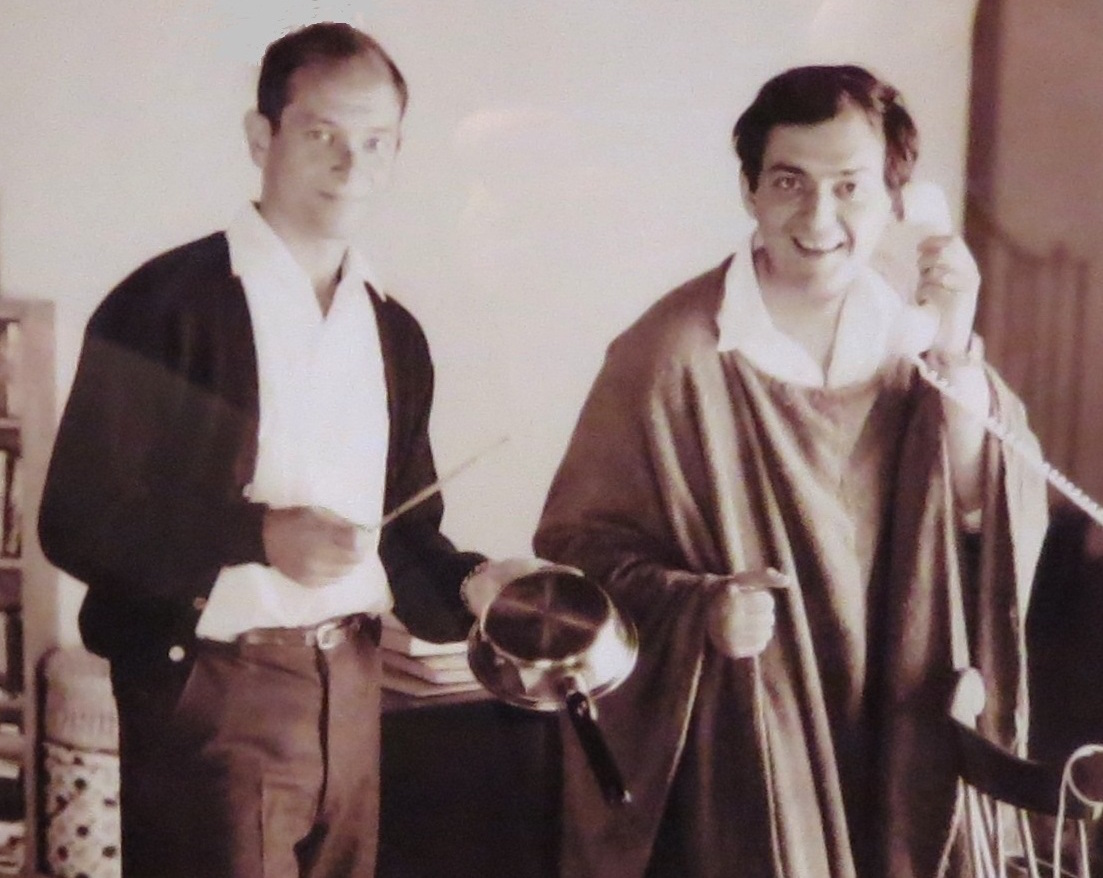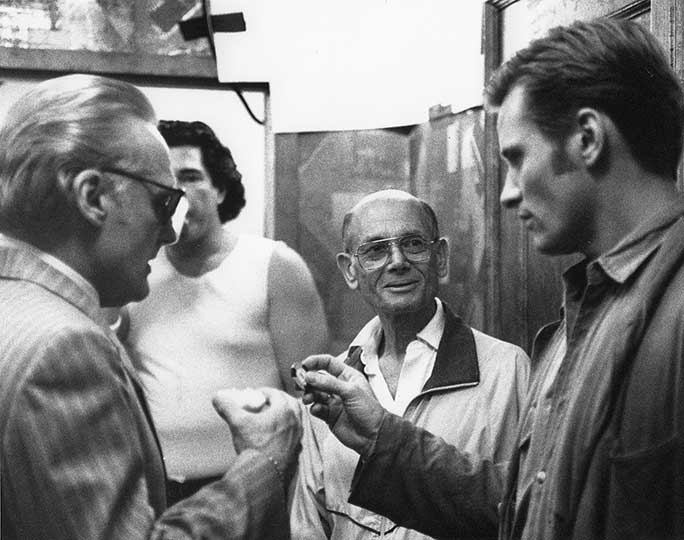Harris Kubrick

For the ten years that they were friends and creative partners, nobody knew film director Stanley Kubrick better than producer James B. Harris.

Born the same week in 1928, the two clicked when a mutual friend introduced them in 1952.
“Right away, we were talking in punch lines,” Harris recalls.
They were 24 years of age. They were ambitious. Harris was at that point a prosperous film distributor and a financier of the now classic TV show Superman. Kubrick was a former Look magazine photographer with three short documentaries and two amateur dramatic features under his belt.
Both were eager to enter The Big Time.
“You want very much to be a director,” Harris told his new friend, “and I want very much to produce.”
They shook hands and Harris Kubrick was born. Three classic films grew out of their partnership: The Killing, Paths of Glory and Lolita. The irrepressible energy and total recall of James B. Harris makes this truth visible.

“You and I will never have a falling out,” Stanley told Jimmy, early on. “We’re both intelligent, logical men. We should be able to talk through any disagreement.”
“All true,” laughs Harris, “and Stanley was so logical that he never lost an argument. I’d always end up agreeing with him.”
They came to a friendly parting of the ways at Dr. Strangelove (1964).
Harris ventured forth to direct his own unique, passionate, dazzlingly realized – and critically acclaimed – body of films: The Bedford Incident (1965); Some Call It Loving (1973); Fastwalking (1982); Cop (1987); and Boiling Point (1993).
His work alongside Kubrick with stars such as Kirk Douglas, James Mason, and Peter Sellers had well prepared Harris to direct and draw great work from Richard Widmark, Sidney Poitier, Donald Sutherland, Richard Pryor, Charles Bronson , James Woods, Dennis Hopper, Viggo Mortensen, Wesley Snipes and many others.

Harris Kubrick will commemorate this great friendship and celebrate Harris’s singular life and talent in a documentary feature film produced by Steven C. Smith, Krista Worby, and Susan Canova Vercellino.
For Harris is not only a unique filmmaker, admired by other filmmakers and writers the world over – among them, Warren Beatty, Bertrand Tavernier, Quentin Tarantino, and James Ellroy – he is, at over 90, a thriving, sharp-eyed, sharp-witted working filmmaker who is as ambitious, if not more so, than colleagues half his age and younger.
By the power of his anecdotes, his observations, we are admitted to what Harris enjoyed with Kubrick as an exclusive club for two in which creation is the order of the day, and no achievement out of reach, living proof that genius takes two.
However greatly we may aspire – however great the wealth of our individual talents – what we achieve in life will only, ever, be as good and durable as the people we choose to make our lives with.
The irrepressible energy and total recall of James B. Harris makes this truth visible. Our film will both express and map an enormous American life – a life well worth celebrating.
info@hkdocumentary.net